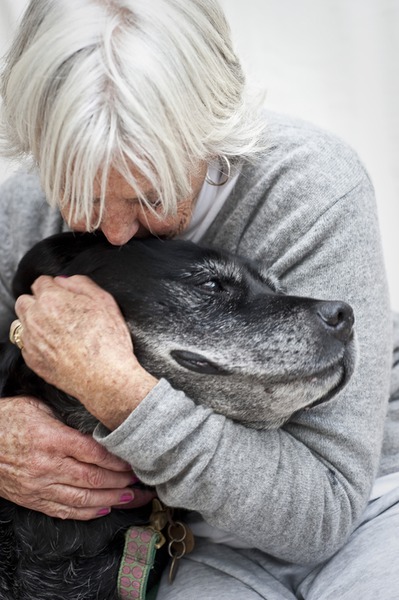Regular vet check-ups are paramount for maintaining the health and happiness of our furry companions. They ensure pets are in the best shape possible and help detect potential health problems early on. Knowing what to expect during a vet visit can alleviate any stress owners may feel and help them prepare for a smooth experience for their pets.
Physical Examination
The cornerstone of a vet check-up, the physical examination is akin to a head-to-tail check-up that assesses the overall health of a pet. During this thorough examination, the vet checks several areas:
-
Weight to monitor obesity or weight loss
-
Eyes for any abnormalities like redness or cloudiness
-
Ears for signs of infection or parasites
Furthermore, the vet palpates the abdomen to ensure no abnormalities in the organs and checks the skin for fleas, ticks, or any unusual lumps or sores.
Vaccinations
Vaccinations are a pillar of preventive health care for pets. The vet will review your pet’s vaccination history and administer any necessary vaccines, which could include:
-
Rabies vaccine, a legal mandate in many jurisdictions
-
Core vaccines like distemper, hepatitis, and parvovirus for dogs, and panleukopenia, calicivirus, and herpesvirus for cats
-
Non-core vaccines depending on the pet’s lifestyle and risk factors
Dental Assessment
Oral health is an often-overlooked but essential aspect of a pet’s wellbeing. During the dental assessment, vets check for dental disease, build-up of plaque and tartar, and any signs of gingivitis or loose teeth.
Parasite Screening
Protecting pets from parasites is an ongoing process. Vets commonly conduct screenings for:
-
Fleas and ticks that transmit diseases
-
Intestinal worms by examining a stool sample
-
Heartworms through a blood test, especially in endemic areas
Nutritional Counseling
Nutrition plays an essential role in a pet’s health. Vets offer guidance on proper diet, portion sizes, and weight management tailored to the pet’s needs, breed, age, and activity level to promote optimal health.
Behavioral Assessment
Vet check-ups provide a prime opportunity to address any behavioral concerns. Vets can give advice on common issues like separation anxiety, aggression, or inappropriate elimination and suggest training classes or behavior modification techniques.
Blood Work
Blood tests are invaluable for detecting hidden problems. A complete blood count (CBC) and biochemistry profile provide information about anemia, infection, organ function, and more, offering a snapshot of the pet’s internal health.
Imaging and Diagnostics
Advanced diagnostics, like pet radiographs in Bonita Springs, FL, offer abundant information regarding a pet’s health that can’t be evaluated through physical exams alone. Such imaging procedures help in diagnosing fractures, lung problems, and checking for foreign bodies or tumors.
Preventive Medications
Keeping pets from getting sick is better than trying to cure them after they are already sick. This is true for problems caused by parasites like fleas and ticks, as well as for other long-lasting sicknesses. Vets, who are animal doctors, often give medicines that help stop these problems before they start. They decide what medicine to give based on how the pet lives and the kinds of risks that are in the environment around them.
Types of Preventive Medications
-
Flea and Tick Preventatives: These are medicines that keep pests like fleas and ticks away from pets. These small bugs can be very annoying and can make pets sick. So, using these medicines can help keep pets from scratching all the time and getting bad skin or diseases from the bites.
-
Heartworm Protection: Heartworm is a very serious condition that can be deadly. It is caused by worms that are spread by mosquitoes. Medicines that protect against heartworms can save a pet’s life by preventing the worms from growing inside the pet’s body.
Choosing the Right Medication
Vets choose the right medicine by looking at each pet’s way of living. For example, pets that spend a lot of time outside might need strong medicine to protect against ticks and fleas. And the place where a pet lives can have more risks of certain diseases, like heartworm, which is more common in some areas than in others.
-
Assessing the Pet’s Lifestyle: Learning about the pet’s daily activities helps vets decide which medicines are needed. Pets that play outside a lot may be more likely to catch bugs or get sick from them.
-
Evaluating Environmental Risk Factors: The vet also thinks about where the pet lives. Some places have more fleas and ticks or have a higher chance of heartworm disease. Vets use this information to protect pets with the right medication.
Giving pets the right preventive medicines can help them to live longer and healthier lives. This way, pets can avoid getting many kinds of sicknesses and the pet owners can feel better knowing their furry friends are protected.
Surgical Consultation
Should the need arise for surgical intervention, vets can provide information about surgery for cats and dogs. From routine spays and neuters to more complex procedures, your vet will guide you through the options, process, and recovery care essentials.
Sample Collection
Collecting samples such as blood, urine, or stool is often part of a comprehensive vet check-up. These samples are crucial for identifying infections, diagnosing diseases, and monitoring organ function. With services provided by a Bonita Springs veterinary practice, you can expect a compassionate approach to these common but essential procedures, ensuring your pet remains in good health throughout its life.
Wrapping Up
The vet will examine your pet, talk about their behavior, talk about preventing parasites, and look into any other issues that might be affecting your pet’s health. Following through with recommended treatments and check-ups as well as being aware of any signs of distress in your pet can help to maintain their health and happiness over their lifetime.





